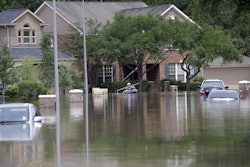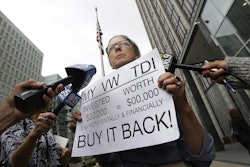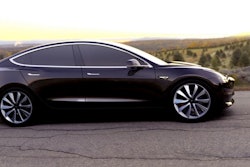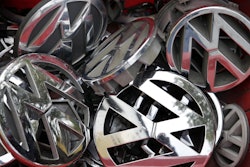CANBERRA, Australia (AP) — Australia announced Tuesday that French company DCNS had beat bidders from Japan and Germany to build the next generation of submarines in Australia's largest-ever defense contract.
DCNS, German's ThysennKrupp Marine Systems and Japan's Mitsubishi were in the running to build 12 conventional submarines that the Australian navy expects will cost at least 56 billion Australian dollars ($43 billion).
Prime Minister Malcolm Turnbull said the French-designed submarines would be built in the Australian manufacturing hub of Adelaide.
"The French offer represented the capabilities best able to meet Australia's unique needs," Turnbull told reporters in Adelaide.
The Japanese bid was the early favorite and the contract promised to become Japan's first fully fledged military technology transfer since World War II.
But Japan's chances appeared to diminish with when government lawmakers dumped Tony Abbott as prime minister in September and as the seasoned European exporters made their pitches.
Abbott saw the Japanese bid as having a strategic value by building on ties with Japan and the United States.
But others warned that Japan's long-term cooperation in the submarine contract might hinge on Australia forming an alliance that could bring Australia into conflict with China, Australia's most important trade partner.
Turnbull said both the Australian and the Japanese governments "are thoroughly committed to the special strategic partnership between Australia and Japan which gets stronger all the time."
"It gets stronger day by day, and we're committed to that and we are committed to our strong trilateral strategic engagement between Australia, Japan and the United States," Turnbull said.
France offered a diesel-electric version of the Barracuda-class nuclear submarine under construction for the French navy. Japan proposed a longer version of its Soryu-class diesel-powered propulsion system with advanced stealth capabilities.
Germany offered a larger variation of its Type 214 submarine made for Australian specifications called a Type 216.
The French bid offered the same pump jet propulsion that gave its Barracuda class nuclear submarines their advanced stealth capacity. Other diesel-electric submarines are too small to be fitted with the same stern-heavy technology.
The German bid had highlighted their decades of experience in building submarines for several navies and had publicly offered to build the entire fleet in Adelaide for AU$20 billion — less than half the navy's expected cost. It promoted as its edge over competitors its partnership with German engineering firm Siemens which would have provided the submarines' software and promised to create a digital shipbuilding center in Adelaide.
Australia already has one of the world's largest conventional submarines, the Australia-built Collins class, and the navy insisted that its replacement at least match its range of 12,000 nautical miles (22,000 kilometers).






















